Exploring Animal Biology Careers: A Guide to Your Future in Wildlife Conservation
Introduction
Wildlife conservation has increasingly become a significant aspect of environmental science, prompting a surge in interest among individuals eager to protect ecosystems and species at risk. As humanity faces climate change, habitat loss, and biodiversity decline, the role of animal biology professionals is more crucial than ever. This article explores various careers in animal biology, focusing on opportunities in wildlife conservation and outlining pathways for aspiring conservationists.
Understanding Animal Biology
What is Animal Biology?
Animal biology is the study of animals and their interactions with the environment. This field encompasses several disciplines, including physiology, ecology, conservation, and behavior. The primary goal of animal biologists is to understand how various species function, adapt, and evolve within their ecosystems, providing critical insights into the health of our natural world.
The Importance of Wildlife Conservation
Wildlife conservation aims to protect, preserve, and manage animal species and their habitats. As species extinction rates accelerate, the importance of conservation efforts grows. Professionals in this field work on the frontline, employing scientific methodologies to address complex ecological challenges. They play a vital role in safeguarding biodiversity, which is essential for maintaining ecosystem stability and human well-being.
Career Pathways in Animal Biology and Wildlife Conservation
1. Wildlife Biologist
Role: Wildlife biologists study various aspects of wildlife populations, including behavior, habitats, and genetics.
Responsibilities:
- Conduct field research on animal populations
- Collect and analyze data to inform conservation strategies
- Develop management plans for endangered species
Education: A bachelor’s degree in wildlife biology or a related field is typically required, although advanced positions may necessitate a master’s or Ph.D.
2. Conservation Scientist
Role: Conservation scientists focus on managing, improving, and protecting natural resources, often working with public land.
Responsibilities:
- Develop management plans for natural resources
- Collaborate with local communities and stakeholders
- Conduct environmental assessments
Education: A bachelor’s degree in environmental science, forestry, or a related field is generally required, with many positions preferring advanced degrees.
3. Ecologist
Role: Ecologists study the relationships between organisms and their environments, focusing on the dynamics of ecosystems.
Responsibilities:
- Research ecosystems and their interactions
- Monitor environmental changes and assess biodiversity
- Develop conservation initiatives based on ecological data
Education: Most ecologist positions require at least a master’s degree in ecology or environmental science, with research experience often becoming a prerequisite.
4. Field Researcher
Role: Field researchers collect data on animal populations and ecosystems, typically working in various habitats.
Responsibilities:
- Design and implement field studies
- Observe and record animal behaviors
- Collaborate with other scientists to share findings
Education: A degree in biology, zoology, or ecology is essential, and field experience may enhance job prospects.
5. Environmental Educator
Role: Environmental educators teach the public about wildlife conservation, ecosystems, and biodiversity.
Responsibilities:
- Develop educational programs and materials
- Conduct workshops and seminars in schools or community centers
- Engage in outreach and community engagement
Education: A degree in education, environmental science, or a related field is generally required, along with teaching experience.
6. Conservation Policy Analyst
Role: These professionals analyze and develop policies related to biodiversity and conservation efforts.
Responsibilities:
- Research policy impacts on wildlife and habitats
- Work with governmental and non-governmental organizations on policy formulation
- Advocate for conservation laws and regulations
Education: A degree in environmental policy, political science, or a related discipline is typically necessary, with advanced positions often requiring master’s or specialist degrees.
7. Veterinary Biologist
Role: Veterinary biologists specialize in the health and wellbeing of wildlife, focusing on both captive and free-living animals.
Responsibilities:
- Provide medical care and rehabilitation for injured or sick wildlife
- Conduct research on diseases affecting wildlife populations
- Collaborate with conservationists to develop health management plans
Education: A Doctor of Veterinary Medicine (DVM) is essential, along with specialized training in wildlife health.
The Skills Needed in Wildlife Conservation Careers
Embarking on a career in animal biology and wildlife conservation requires a unique set of skills:
Scientific Literacy
A strong foundation in biological sciences is essential. Understanding ecosystem dynamics, species interactions, and conservation techniques forms the backbone of effective wildlife management.
Analytical Skills
Wildlife conservation professionals must analyze vast amounts of data collected from field studies. Critical thinking and problem-solving skills are vital for interpreting research results and making informed decisions.
Communication Skills
Effective communication is key in this field. Wildlife conservationists often collaborate with various stakeholders, including government agencies, non-profit organizations, and local communities. They must convey complex scientific concepts in an accessible manner.
Teamwork and Collaboration
Many conservation projects require interdisciplinary collaboration. Being able to work effectively within a team setting is essential for success.
Adaptability and Resilience
The field of wildlife conservation frequently involves unexpected challenges, including changes in funding, policy, or ecological conditions. Professionals must remain adaptive and resilient in the face of these hurdles.
Gaining Experience in Animal Biology and Conservation
Volunteering and Internships
Gaining hands-on experience through volunteering or internships is crucial for aspiring conservationists. Many organizations, including wildlife rehabilitation centers, zoos, and conservation NGOs, offer opportunities for students and recent graduates to gain practical skills while contributing to meaningful projects.
Education and Continuous Learning
Pursuing higher education can enhance your credentials and improve job prospects. Many universities offer specific programs related to wildlife conservation, ecology, and environmental policy. Engaging in continuous learning through workshops, certifications, and additional courses can also bolster your skill set.
Networking
Building professional relationships is vital in wildlife conservation. Attending conferences, joining professional organizations, and participating in workshops can help you connect with others in the field. These relationships often lead to job opportunities and collaborative projects.
Financial Considerations in Wildlife Conservation Careers
Salary Expectations
Salaries in wildlife conservation can vary widely based on the role, location, and level of experience. According to data from the U.S. Bureau of Labor Statistics, wildlife biologists and ecologists earn a median annual wage of approximately $66,350. However, roles in higher education, research, and government typically offer more competitive salaries.
Funding and Grants
Many conservation projects rely on grants and funding from various sources, including governmental agencies, non-profits, and international organizations. Understanding how to write proposals and secure funding is a vital skill for professionals in this field.
Job Market Trends
The job market for wildlife conservation professionals is increasingly competitive. According to the U.S. Bureau of Labor Statistics, employment opportunities are projected to grow by 5% over the next decade, in line with the demand for conservation efforts driven by climate change and habitat loss.
The Future of Wildlife Conservation Careers
The future of wildlife conservation careers is bright yet challenging. With the growing recognition of the importance of biodiversity and ecosystems in establishing sustainable practices, the call for dedicated professionals will continue to rise. Key trends influencing this landscape include:
Technological Advancements
Emerging technologies, such as remote sensing, drone surveillance, and genomic sequencing, are transforming wildlife conservation strategies. Professionals in this field must remain adaptable and embrace these innovative solutions to enhance their conservation efforts.
Climate Change Mitigation
Climate change remains one of the most significant threats to wildlife populations. Conservationists play a crucial role in developing strategies to mitigate its impacts, such as habitat restoration and species monitoring.
Community Engagement
Conservation efforts increasingly emphasize community involvement. Working with local communities fosters stewardship and support for conservation initiatives, ensuring more sustainable long-term outcomes.
Policy Developments
Changes in environmental laws and policies can directly impact wildlife conservation. Keeping abreast of policy developments and advocating for science-based legislation will be essential for future professionals.
Conclusion
Pursuing a career in animal biology and wildlife conservation can be incredibly fulfilling. The opportunity to protect ecosystems and contribute to the preservation of biodiversity is a noble calling that requires dedication, resilience, and a continuous thirst for knowledge. By carefully considering your career options, gaining practical experience, and staying informed about industry trends, you can carve out a meaningful future in wildlife conservation. Are you ready to take the plunge and make a difference?
References
[1] U.S. Bureau of Labor Statistics. "Occupational Outlook Handbook." U.S. Department of Labor, 2023. Link [2] National Parks Conservation Association. "Wildlife Conservation: A Vital Mission." NPCA, 2023. Link [3] International Union for Conservation of Nature (IUCN). "The 2023 Red List of Threatened Species." IUCN, 2023. Link [4] Wildlife Conservation Society. "Careers in Wildlife Conservation." WCS, 2023. Link [5] National Wildlife Federation. "The Importance of Biodiversity." NWF, 2023. Link [6] Conservation International. "Understanding Animal Biology for Effective Conservation." Conservation International, 2023. Link [7] The Nature Conservancy. "What is Wildlife Conservation?" TNC, 2023. Link [8] American Institute of Biological Sciences. "Career Opportunities in Biology." AIBS, 2023. Link [9] Society for Conservation Biology. "Conservation Jobs and Training." SCB, 2023. Link [10] National Oceanic and Atmospheric Administration (NOAA). "Marine Animals and Conservation." NOAA, 2023. LinkThis guide provides insight into the multifaceted world of animal biology and wildlife conservation careers. Whether you’re just starting or aiming to advance your career, the opportunities to make a difference in our natural world are boundless.
















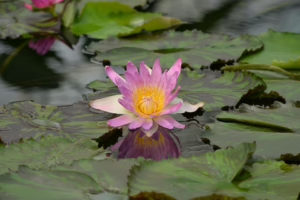
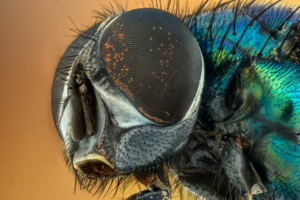
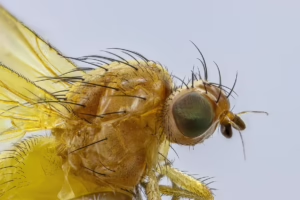
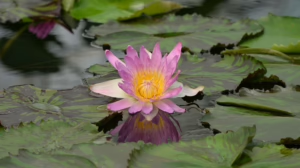
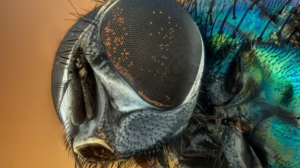
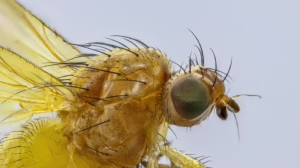




Add Comment